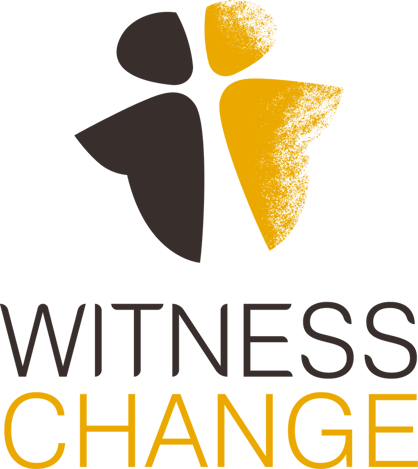
Witness Change
A 501(c)(3) non-profit organization, Witness Change uses multimedia storytelling to support marginalized people to reclaim their narratives and improve their lives. Our vision is to create inclusive societies with equal rights for all.
Founded in 2015, Witness Change has worked all around the world to bring about systemic change. We believe that if the story is wrong, the policy will be wrong. Our key projects include: Where Love is Illegal, LGBTQI+ stories of discrimination and survival; In My World, stories of living with mental health issues and psychosocial or intellectual disabilities; and 1000 Dreams, refugee stories authored by refugees. Our projects have reached more than 250 million people worldwide.
Our projects are made possible through the generous support of our partners. Our partnerships help us bring stories to people who otherwise would not be reached. This year at Witness Change, we are working to raise the following:
$60K for Where Love Is Illegal
$210K for 1000 Dreams
$45K for In My World
$100K for General Operating Support
Robin Hammond has dedicated his career to amplifying narratives of marginalised groups through long term visual storytelling projects. He is the founder and director of Witness Change. Career recognition includes the winning of two World Press Photo prizes, the RF Kennedy Journalism Award, six Pictures of the Year International Awards, the W.Eugene Smith Award for Humanistic Photography, the recipient of six Amnesty International awards for Human Rights journalism, winner of the Carmignac Photojournalism Award and being named by Foreign Policy as one of the “100 Leading Global Thinkers.”
“As an artist, I know that a single photograph can tell a greater truth than a pile of statistics, and there is profound humanity in giving individuals at the margins the opportunity to step into the light. Robin’s images tell the story of struggle and survival, of resilience and empathy, of discrimination and the hard work and advocacy needed to overcome it. These images show us people who seek only to live honestly, openly, with dignity and without fear.”
- Elton John musician, activist, philanthropist
Financials
Programs
Where Love Is Illegal - LGBTQI+ stories of survival
Where Love Is Illegal amplifies the voices of LGBTQI+ people who have experienced discrimination and persecution based on their gender identity and/or sexual orientation. We document people’s stories, and share those stories around the world, in order to change attitudes and end the persecution of LGBTQI+ people.
1000 Dreams - by refugees, for refugees
The 1000 Dreams project’s aim is to create 1000 stories (photo and interview) about people with a refugee background, created entirely by storytellers from this community. So far, 958 stories have been collected, representing 50+ countries, and storytelling workshops have been held in several cities, training new storytellers in photography and interview techniques. 1000 Dreams amplifies refugee voices as storytellers shaping the narratives that define them in the eyes of majority populations. Refugees are often depicted as invading hordes threatening national identities and placing unsustainable burdens on social services. Meanwhile, those more sympathetic to refugees regularly represent them as helpless and hopeless victims. Both views reduce people on the move to a stereotype, forgetting that each is a unique individual and that the refugee experience is hugely diverse. Training refugee storytellers means their voices, which are all too often erased or othered, are amplified.
In My World - the global mental health crisis
In My World amplifies the stories of people living with mental health issues, psychosocial disabilities or intellectual disabilities. We do so to ensure that people affected are part of the conversations about them. We also create storytelling designed to support organizations providing essential mental health services to particularly vulnerable groups.
Volunteering + Events
Want to volunteer with Witness Change?
We’re always looking for volunteer editors and translators to join our team!
The translator role means translating 1000 Dreams stories from Ukrainian, Russian, Amazigh, and Moroccan Arabic into English.
The editing role means checking 1000 Dreams stories for safeguarding measures, and editing them down to 1000 characters: creating testimony summaries that capture these experiences.
To apply to be a volunteer, please go ahead and fill in this form.